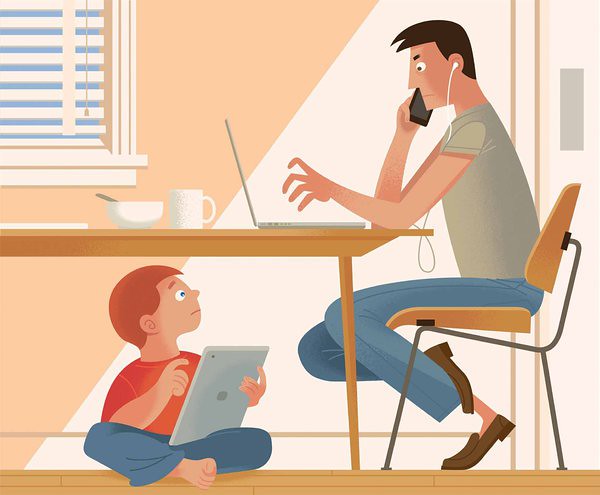Children and Screen Time

They say that you shouldn’t get high on your own supply. Nowhere has this statement been truer than when it comes to electronic devices. Bill Gates did not allow his children to use cellphones until they were teenagers. Steve Jobs would not let his young children use iPads, and current Apple CEO Tim Cook said that he would not let his nephew use social networks.
Those are not just exceptions. As reported by New York Times, many techies from Silicon Valley and elsewhere have set strict rules that regulate or restrict the use of electronic devices by their children. Some have gone to an extent of requiring their nannies to sign an agreement that they will not only disallow children from using phones and tablets, but also they themselves will not use phones in the presence of the children.
Why is there such a radical approach by the techies when it comes to use of electronic devices by kids? There are a number of reasons. The actual effect of screen time on children is not clear. It has been said that there are no known benefits of screen to children under 18 months. There are a number of reasons to believe that it is harmful. With such, it is better to err on the side of caution, and this could be the reason why the Silicon Valley veterans are turning extremists when it comes to screen time regulation. Screens are addictive, and they can have a negative impact on early childhood which is a time of rapid development. This is the time when healthy lifestyle patterns should be developed.
Screens have become great pacifiers for children. A restless toddler easily calms down when they are given the glowing screens. Others will spend hours watching baby shark videos over and over again. I find babies very intrigued by phones, and the rife temptation is always to give a child a phone while you catch a nap. Since the advent of smartphones and tablets, screens are able to capture the attention of both the young and the old, and they have changed from limited use feature phones to powerful computing devices.
While it is said that introducing kids to electronic devices early in life will help them become tech savvy, that does not seem to be the case. When it comes to learning, electronic gadgets are simply tools just like text books. This is very well illustrated with the life of a friend of mine who never encountered computers until first year in campus. Four years down the line, he turned out to be one of the best software developers in his class. The skills required to produce a software developer had been honed in day to day activities while away from computers.
The truth is, when we give a baby a phone, we are not trying to help them. We are usually trying to help ourselves. We just want some peace of mind, or some quiet time, and so we find an easy way to distract them. We fail to give them one thing that they really need; attention.
Possible solutions
What can parents and guardians do in order to protect the young ones and ensure that they are bringing up a resilient generation that will thrive both in online and offline world? Here are a few suggestions.
- As much as you can, allow no screen time for children under 18 months, and utmost 1 hour of guided screen time for children between 2 and 4 years.
- Avoid sedentary screen time. Let every moment spent in front of a screen be spent actively engaging with some content, not just sitting and staring idly.
- Ensure children get good exercise and sleep, which are vital for human development.
- Prioritize human interactions over electronic devices. Let kids get creative with traditional toys, games and one on one interactions.
- Whenever kids use screen, try to limit the amount of entertainment and balance with other productive activity. Too much entertainment is is not good. Find content that helps children gain useful skills.

